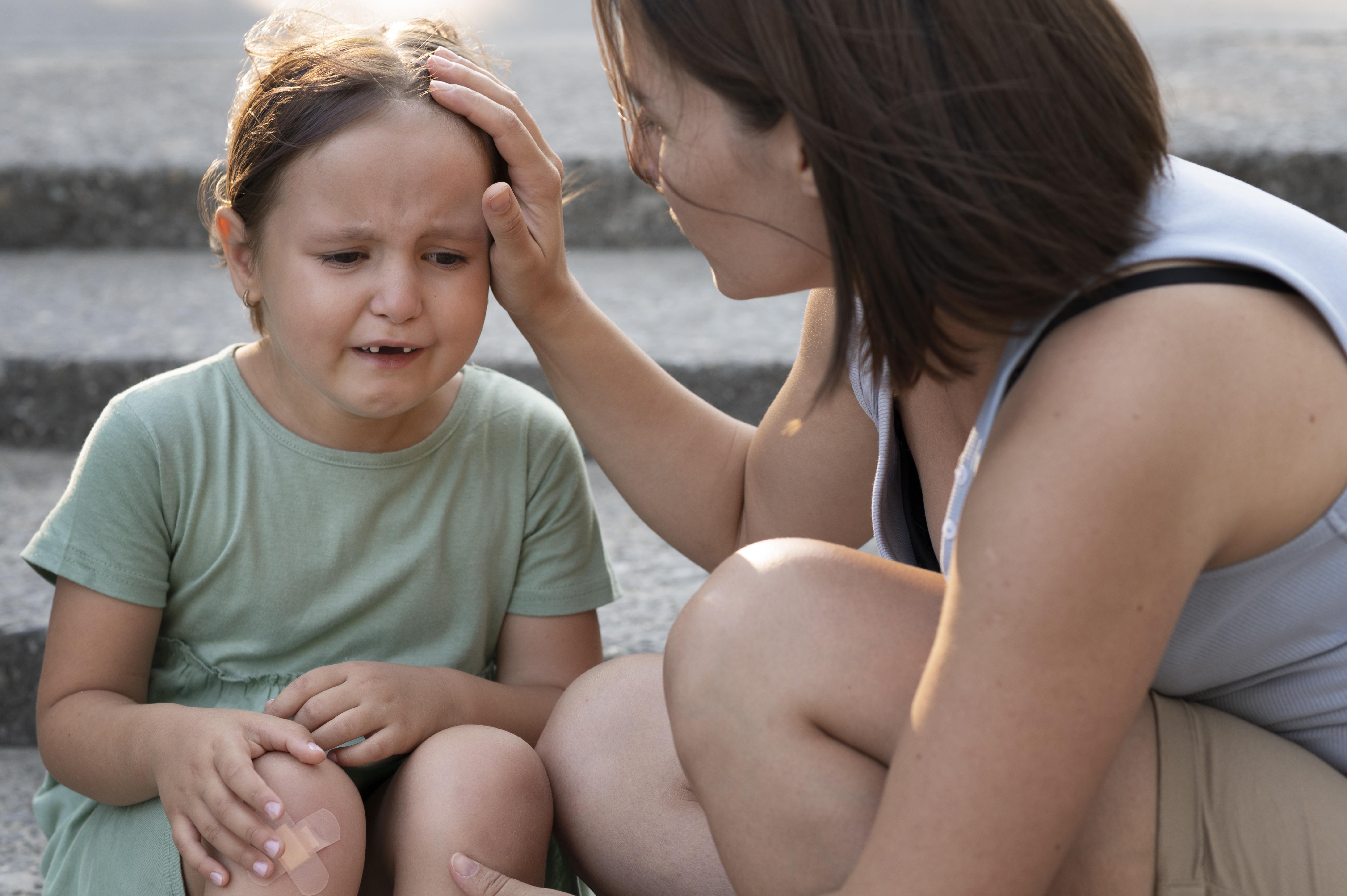Inspiring Minds
Nurturing Your Child's Confidence: Overcoming First Day Jitters at Preschool
Rani Sidhu (VP Academic and Quality Assurance Invictus Preschool)

January 26, 2024
Introduction:
The first day of preschool can be an emotional milestone both for parents and their young children. As your child ventures into this new and exciting chapter, it is crucial to create a positive and supportive environment. By taking a few simple steps, parents can help dispel those first-day jitters and prepare their child for a smooth transition into preschool life.
Building Familiarity:
One effective way to alleviate anxiety is to familiarise your child with the preschool setting beforehand. Schedule visits to the school and allow your child to explore the classroom, meet their prospective teacher, and interact with other children. This exposure will help create a sense of comfort and predictability for your child, reducing their fear and uncertainty on the first day.
Establishing Routines:
Children thrive on routines, as they provide a sense of security and stability. Create a consistent daily routine leading up to the first day of preschool. Set consistent times for waking up, eating meals, taking naps, and engaging in activities. By establishing these routines, your child will feel more at ease when they encounter a new routine at preschool.
Encouraging Independence:
Sharing Positive Stories:
Talk positively about preschool and share stories about your own experiences or those of older siblings and friends. Highlight the fun and exciting aspects of preschool, such as making new friends, engaging in new activities, and discovering new things. By creating a positive narrative around preschool, your child will feel more eager and excited about their own experience.
Emotional Preparation:
Acknowledge and validate your child's emotions about starting preschool. Talk openly about any worries or fears they may have, allowing them to express themselves. Reassure them that it is okay to feel nervous and that many other children will be feeling the same way. Encourage your child to ask questions and provide honest answers while emphasizing the positive aspects of preschool.
*Create a Special Goodbye Ritual:
Saying goodbye can be the hardest part of the day for both parents and their children. Create a special goodbye ritual to make it easier for your child to separate from you. This could be a hug, a high-five, or even a special phrase that you say each time. This will help your child feel more secure and connected to you, even when you are not physically present.
Don't Rush the Goodbye:
It can be tempting to want to rush the goodbye so that you can get on with your day. However, taking the time to say goodbye properly can help your child feel more secure. Make sure to give your child a chance to say goodbye properly, even if it takes a little longer.
Provide a Special Comfort Item:
Many young children have a favourite toy or blanket that they find comforting. Allow your child to bring this special item to preschool to provide a sense of familiarity and comfort. This can also serve as a tool for soothing themselves if they feel anxious.
Plan Fun Activities After School:
Having something to look forward to after school can make the transition easier. Plan a fun activity for after school, such as going to the park or doing a craft project together. This will give your child something positive to focus on and help them feel excited about preschool.
Stay Positive:
Your attitude can impact your child's experience of starting preschool. Stay positive and upbeat, even if you are feeling anxious yourself. Your child will pick up on your emotions, so it's important to model a positive attitude.
Conclusion:
Preparing your child for their first day of preschool is essential for a smooth transition. By implementing these strategies and providing a nurturing environment, parents can dispel first-day jitters and set their child up for success. Remember, every child is unique, so it is important to tailor your approach to meet their individual needs. Be patient, stay open-minded, and trust that you know your child best.
- The Importance of a Good Preschool Transition by Deborah Diffily and Kathy Morrison, Journal of Effective Schools Project, 2010.
*To learn more about how to create a Special Goodbye Ritual, please refer to the article "Creating a Special Goodbye Ritual for a Smooth Preschool Transition with Your 2-Year-Old."
*Create a Special Goodbye Ritual:
Don't Rush the Goodbye:
Provide a Special Comfort Item:
Plan Fun Activities After School:
Stay Positive:
Conclusion:
Reference:
*To learn more about how to create a Special Goodbye Ritual, please refer to the article "Creating a Special Goodbye Ritual for a Smooth Preschool Transition with Your 2-Year-Old."

